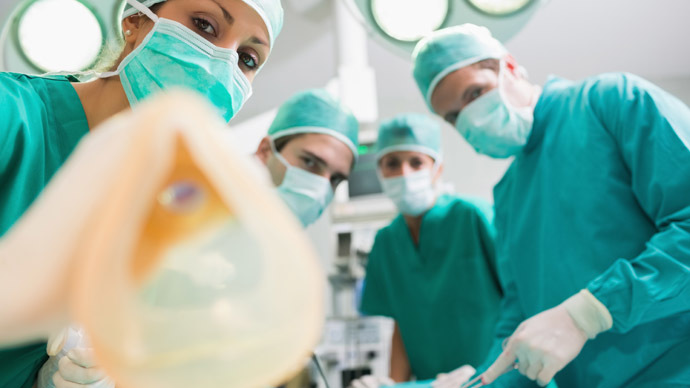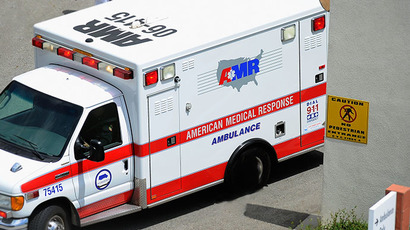Hundreds of UK & Irish patients wake up every year during surgery – report

More than 300 people a year in the UK and Ireland report they have been conscious during surgery – despite being given general anaesthesia.
Led by the Royal College of Anaesthetists and Association of Anaesthetists of Great Britain and Ireland, researchers studied 3 million operations over a period of one year.
More than 300 people in the UK reported "waking up" during surgery and said they could feel pain and hear conversations, but could neither move nor communicate with doctors, the report revealed.
In the largest study of its kind, scientists suggest this happens in one in every 19,000 operations, mainly because of certain administered drugs.
Prof Tim Cook, at the Royal United Hospital in Bath, who led the research, said: "For the vast majority it should be reassuring that patients report they were conscious during operations so infrequently. However for a small number of patients this can be a highly distressing experience.”
He added, “I hope this report will ensure anesthesiologists pay even greater attention to preventing episodes of awareness."
However, the experience is short-lived and generally occurs at the beginning or the end of surgery. But some 41 percent of cases resulted in long-term psychological harm.
Patients described a variety of experiences, from panic and pain to choking, to feeling paralyzed and being unable to communicate, the researchers say.
One patient, Sandra, described her experiences of routine orthodontic surgery at the age of 12.
“Suddenly, I knew something had gone wrong,” said Sandra, “I could hear voices around me, and I realized with horror that I had woken up in the middle of the operation, but couldn't move a muscle... while they fiddled, I frantically tried to decide whether I was about to die.”
She told researchers that for more than 15 years after her operation she had nightmares of monsters leaping out to paralyze her.
And it was only after she made the connection between this and her operation that the nightmares stopped.
About 90 percent of cases happened after patients had been administered an "inappropriate balance" of muscle-relaxant drugs and anesthetics, leaving them paralyzed but still aware.
A number of women who had Caesarean sections while under general anesthesia also reported moments of awareness during surgery.
Other occurrences include lung and heart operations and surgery on patients who are obese. And some 17 cases were due to drug administration errors.














